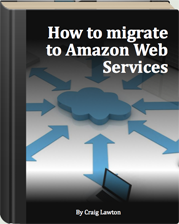It’s good to finally bring this series to a close. Launching an 11-part series in hindsight was quite a slog… And I caught the plague that has been going around Melbourne, which disrupted my blogging schedule.
We’ve talked previously about cost management in the cloud, but there are other financial considerations worth considering that present as problems – or opportunities – depending on the context.
Two seldom-considered issues around cloud adoption are tax and insurance.
Tax
- Residency – Does moving to the cloud enlarge your company’s presence enough that it needs to establish a permanent taxable establishment in another country?
- Source of income – Most jurisdictions tax an entity if the income has been ‘sourced’ in that jurisdiction. A business conducted in the cloud creates practical difficulties in determining where income is sourced.
- Transnational tax agreements – Nations assign taxing rights to one jurisdiction or another to avoid double-taxing of people and companies. These types of laws weren’t created with cloud computing in mind so it can be difficult to work out where, and by whom, tax is collected.
- Indirect taxes – Indirect sales and consumptions taxes may or may not be included on your bill if Amazon is required to include it and a significant liability might accrue. Best be careful!
- Changes in in-house infrastructure: In-house infrastructure is a long-term asset that can be written down and is sometimes tax deductible. Reducing your in-house IT might impact these long term write-downs.
Insurance
Another new curious new area of finance to consider is cloud insurance. These products have evolved because cloud providers don’t cover the real cost of service outages and data loss. Specifically cloud insurance works to mitigate two risks:
- Service Outage – Providers like AWS only provide service credits when an SLA is breached. The real cost of an outage has to be covered by the customer. The cost will depend very much on what business function was being performed on AWS. Cloud insurance in this instance can offset some of the financial pain thereby limiting or mitigating some risk. Insurance could be sought independently or through the cloud provider itself.
- Data Breach/Loss – This doesn’t necessarily apply only to AWS/Cloud. It could apply to in-house infrastructure too. A company’s information and data are worth many times more than the computing equipment itself. Insurance provides some financial protection against a company’s data risk in the cloud, which can assist with timely restoration and rectification in the event of data loss or breach.
Cloud insurance can be bought through the MSPAlliance and companies like Cloud Insure. Check them out.
**********
Really though, I find all this finance malarkey incredibly boring. Researching this article I felt there were valid points to consider but also I had the feeling there was a fair smattering of FUD – which we would never resort to in IT of course!
What do you guys think? Are these issues real, and these products worth investigating?



